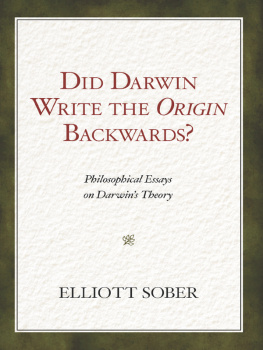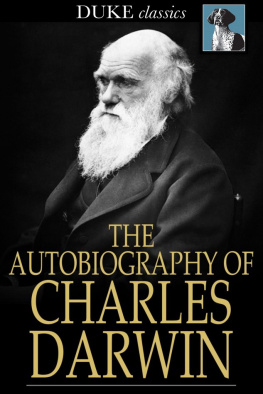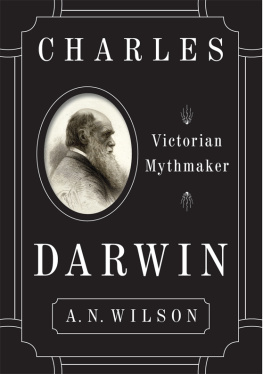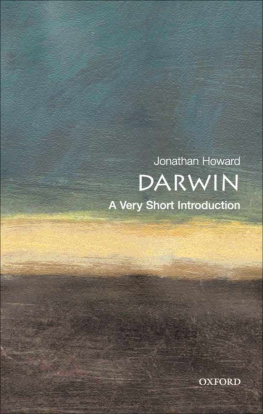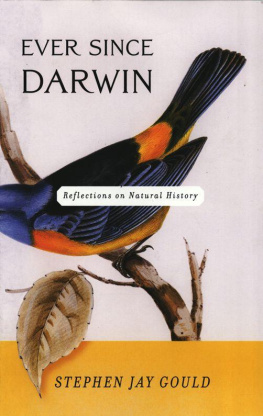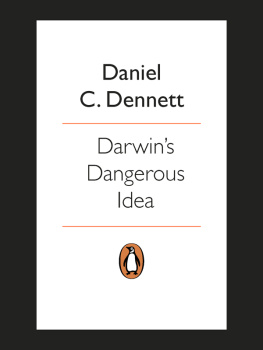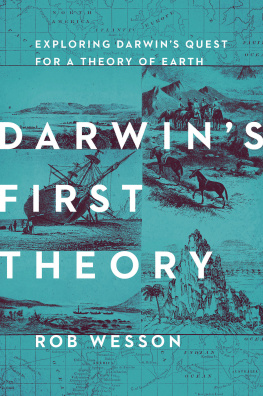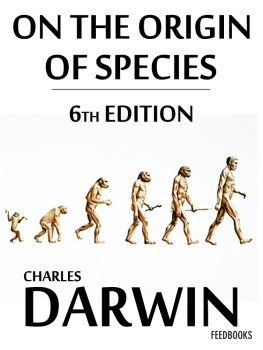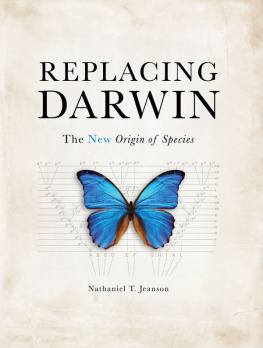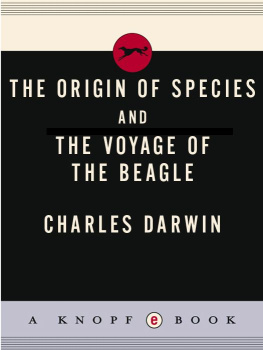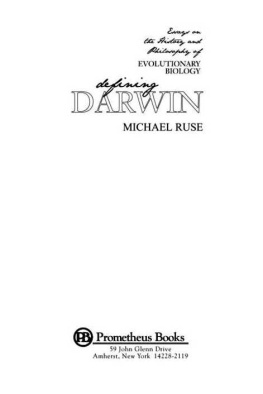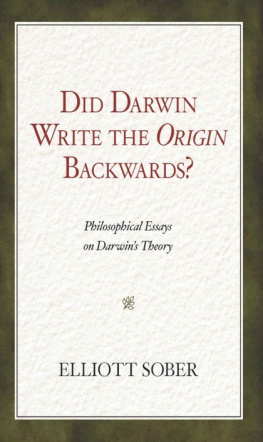
Published 2011 by Prometheus Books
Did Darwin Write the Origin Backwards? Philosophical Essays on Darwin's Theory. Copyright 2011 by Elliott Sober. All rights reserved. No part of this publication may be reproduced, stored in a retrieval system, or transmitted in any form or by any means, digital, electronic, mechanical, photocopying, recording, or otherwise, or conveyed via the Internet or a Web site without prior written permission of the publisher, except in the case of brief quotations embodied in critical articles and reviews.
Inquiries should be addressed to
Prometheus Books
59 John Glenn Drive
Amherst, New York 142282119
VOICE: 716691-0133
FAX: 716691-0137
WWW.PROMETHEUSBOOKS.COM
15 14 13 12 11 5 4 3 2 1
Library of Congress Cataloging-in-Publication Data
Sober, Elliott.
Did Darwin write the Origin backwards? : philosophical essays on Darwin's theory / Elliott Sober.
p. cm.
Includes bibliographical references and index.
ISBN 9781616142308 (pbk. : alk. paper)
ISBN 9781616142780 (e-book)
1. Darwin, Charles, 18091882. 2. Darwin, Charles, 18091882. On the origin of species. 3. Evolution (Biology)Philosophy. 4. Natural selectionPhilosophy. I. Title.
QH365.o8s63 2010
576.8dc22
2010030409
Printed in the United States of America on acid-free paper


This book is a mixture of historical attention to Darwin's texts and philosophical attention to questions that arise in Darwin's theory and in the evolutionary biology that his theory initiated. This is not a work of hagiography, but neither does it treat Darwin's work as an object of merely antiquarian curiosity.
The first chapter examines a simple but fundamental question about how Darwin organized his argument in the Origin of Species. The two big ideas in Darwin's theory are common ancestry and natural selection. Why did Darwin put selection first and foremost in the Origin and allow his views about common ancestry to emerge only gradually and as a secondary theme? This is a question about Darwin's rhetoric the strategy he used to lay out his argument. The question becomes pressing when we look at Darwin's logicat how the elements of his theory are related to each other and to the evidence he assembles.
discusses Darwin's views about group selection. My exposition begins in the 1960s, then moves to the present, and then time travels back to 1859. The idea that traits evolve because they are good for the group was criticized in the 1960s, not just for being factually mistaken, but for embodying a kind of mushy thinking that is fundamentally at odds with the logic that Darwin's theory requires. The 1960s are very much alive today, in that many biologists still regard the concept of group selection as a snare and a delusion. However, a countermovement has arisen since the 1960s called multilevel selection theory, according to which selection acts at multiple levels, including the level of the group. After briefly outlining the 1960s attack on group selection and the concept's subsequent revival, I examine Darwin's views on the subject. I do so by analyzing his reasoning about four examples: human morality, the barbed stinger of the honeybee, neuter workers in species of social insect, and the sterility of many interspecies hybrids. I then consider Darwin's general position on the role of group selection in evolution.
design argument for the existence of God. A century later, Darwin tried to use his theory of natural selection to solve the problem, but he gave up in frustration, hoping that the evolutionary biology of the future would do better. His hope came true. Sex ratio is an interesting case study, since it is a problem at which both intelligent-design theorists and evolutionary biologists have had a go. Evolutionary biology has succeeded where creationism has failedin formulating hypotheses that make predictions about future observations rather than simply being able to accommodate past ones.
concerns methodological naturalism, a philosophical position that is absolutely central to modern science. Methodological naturalism says that science should not make claims about God. I begin the chapter by describing what Darwin says about God in the Origin. Do Darwin's remarks represent a violation of methodological naturalism? Answering this question leads to a refinement of what this ism means. I then explore how the theory of evolution is related to three theistic positionscreationism, deism, and the view that evolutionary theory is true but incomplete because God's interventions in nature sometimes supplement the causes that the theory describes. It is obvious that the theory is incompatible with creationism, and it is a familiar point that evolutionary theory is logically compatible with deism. It is less often recognized that evolutionary theory also is compatible with some interventionist theologies. I defend this thesis of compatibility by clarifying the biological claim that mutations are undirected. I do so, not because I want to endorse the thesis that God intervenes in nature, but because I think it important that theists and atheists both recognize that evolutionary theory really is neutral on this question. I then consider three defenses that have been made of methodological naturalismthat science, by definition, is an enterprise that excludes claims about supernatural deities; that claims about the supernatural are untestable; and that including such claims in scientific theories would bring science to a stop. After criticizing these arguments, I provide a more modest defense of methodological naturalism.
In the postscript (, I consider whether the probabilities discussed in evolutionary theory describe objective matters of fact.
Madison, Wisconsin
January 2011

A number of individuals read this manuscript as it developed and gave me useful comments. Others were kind enough to answer specific questions that I put to them as I was writing. I very much appreciate the help of Michael Antolin, Matthew Barker, John Basl, David Baum, Glenn Branch, John Hedley Brooke, Hayley Clatterbuck, James Crow, Niles Eldredge, Marc Ereshefsky, Joshua Filler, Jean Gayon, Michael Goldsby, Daniel Hausman, Casey Helgeson, Jonathan Hodge, Robert Jeanne, Philip Kitcher, David Kohn, Matthew Kopec, Egbert Leigh, Richard Lewontin, David Miller, Gene Miller, Gregory Novack, Ronald Numbers, Samir Okasha, Alvin Plantinga, Gregory Radick, Robert Richards, Alexander Rosenberg, Michael Ruse, Sam Schweber, Larry Shapiro, Frank Sulloway, Mark Taylor, Michael Titelbaum, Peter Vranas, Paul White, and David Sloan Wilson.
My debts go deeper into the past, in that there are many scholars who helped me as I worked on previous publications that are in varying degrees ancestral to the present book. In addition to the individuals listed above, I want to thank David Bordwell, Robert Brandon, Jeremy Butterfield, Juan Comesaa, James Cortada, Anthony Edwards, Branden Fitelson, Patrick Forber, Malcolm Forster, Clark Glymour, Christopher Hitchcock, Thomas Hofweber, Marc Lange, John Lazarus, Stephen Leeds, Gerald McKenna, Hugh Mellor, Bradley Monton, Steven Orzack, Ann Pollock, John Roberts, Robert Russell, Carolina Sartorio, Armin Schulz, Christopher Stephens, William Stoeger, Michael Strevens, Mark Taylor, Joel Velasco, Howard Weinbrot, James L. Wood, Jim Woodward, and Ed Zalta.

